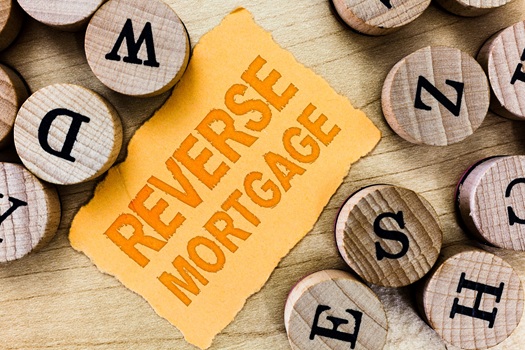
Retirement looks a little different these days. With longer lifespans, rising costs, and unpredictable markets, many older homeowners are rethinking how to manage their finances in the years ahead. That’s where reverse mortgage come into the picture. More than just a financial product, it’s become a practical tool for those looking to stay in their homes and enjoy a more flexible retirement lifestyle—without monthly loan payments.
If you’re wondering how a reverse mortgage works or whether it’s right for your retirement plans, this guide breaks it all down clearly and simply.
- What Is a Reverse Mortgage and Why Are Retirees Choosing It?
- Living Longer Means Rethinking Retirement Income
- Rising Healthcare Costs Call for Smarter Planning
- Choose the Payout Method That Fits Your Lifestyle
- The Tax Benefits Make It Even More Appealing
- Reverse Mortgage Offers a Buffer Against Market Volatility
- Who Might Benefit Most from a Reverse Mortgage?
- Important Considerations Before Moving Forward
What Is a Reverse Mortgage and Why Are Retirees Choosing It?
Unlike a conventional mortgage where you make monthly payments to a lender, a reverse mortgage allows homeowners to receive payments instead. It turns a portion of your home’s equity into usable cash, which can be received in several different ways. Best of all, you don’t need to move or sell your house to benefit.
This setup is particularly helpful for retirees who have built up equity but want more liquid income without dipping into savings or selling off investments. In most cases, the loan isn’t repaid until the homeowner sells the property, moves out permanently, or passes away.
Because of this flexibility, reverse mortgages are now a go-to solution for many seniors navigating financial needs during retirement.
Living Longer Means Rethinking Retirement Income
Today’s retirees are living longer than ever before, and while that’s great news, it also means their savings must stretch further. Unfortunately, not all retirement plans account for 25 to 30 years of living expenses. That’s where a reverse mortgage can fill the gap.
By accessing their home equity, retirees can enjoy extra income without touching investment accounts or pensions. Whether it’s monthly payouts or a lump sum, that financial cushion can make a big difference over time.
Rising Healthcare Costs Call for Smarter Planning
 retirement in Charleston SC
retirement in Charleston SCAnother reason reverse mortgages in Charleston SC are gaining attention is the rising cost of healthcare. Many retirees face medical bills that weren’t in their original retirement plan. From prescriptions to ongoing treatments, these costs can add up quickly.
With a reverse mortgage, homeowners can tap into funds to cover those unexpected expenses, all while maintaining their financial independence. Instead of worrying about selling assets or relying on family, they can stay in control.
Choose the Payout Method That Fits Your Lifestyle
One of the biggest advantages of this option is flexibility. Homeowners can tailor their reverse mortgage to suit their needs. Some prefer fixed monthly payments that offer consistency, while others take a lump sum to pay off debt or make home improvements.
There’s also the option of a line of credit that grows over time, allowing retirees to access funds only when necessary. This approach gives homeowners the freedom to choose how and when to use their home equity—something that traditional loans simply don’t offer.
The Tax Benefits Make It Even More Appealing
Here’s something many people don’t realize: funds from a reverse mortgage are typically tax-free. Since this money is considered a loan rather than income, it doesn’t raise your taxable income level. That means it won’t impact your tax bracket or raise your Medicare premiums like other income streams might.
For retirees who want to keep their finances simple and efficient, this is a powerful benefit.
Reverse Mortgage Offers a Buffer Against Market Volatility
Retirees who rely heavily on investments know how unsettling market swings can be. Selling assets during a downturn often leads to losses. However, with a reverse mortgage, you gain a backup plan. Rather than cashing out stocks at the wrong time, homeowners can use equity to ride out market dips with less stress.
This approach not only helps preserve your portfolio but also gives you greater control over your financial timing.
Who Might Benefit Most from a Reverse Mortgage?
Not every retiree in Charleston SC will benefit in the same way, but a reverse mortgage can be especially useful for:
- Retirees with limited monthly income but valuable home equity
- Homeowners who plan to stay in their current home long-term
- Individuals with high medical costs or ongoing care expenses
- Seniors without heirs or those not focused on leaving a home as inheritance
Each situation is unique, but when used wisely, this option can create long-term stability and comfort.
Important Considerations Before Moving Forward
Even though reverse mortgages offer many perks, they’re not without costs or responsibilities. For example, fees like closing costs, mortgage insurance, and interest do add up over time. These reduce the total equity left in your home and may affect what your heirs inherit.
It’s also essential to remember that the homeowner must keep up with property taxes, insurance, and home maintenance. Failing to do so can put the loan at risk of default.
In some cases, reverse mortgages can affect eligibility for government benefits like Medicaid or SSI. So, if you rely on these programs, speak with a financial advisor before applying.
South Carolina Reverse Mortgage Services provides honest guidance and helpful support, making sure your reverse mortgage fits with your long-term financial goals and lifestyle plans.
Call South Carolina Reverse Mortgage Services now to explore whether a reverse mortgage is the right step for your retirement. Our team is ready to answer your questions, explain your options, and help you build a financial future that supports your comfort, confidence, and independence.

No comments:
Post a Comment